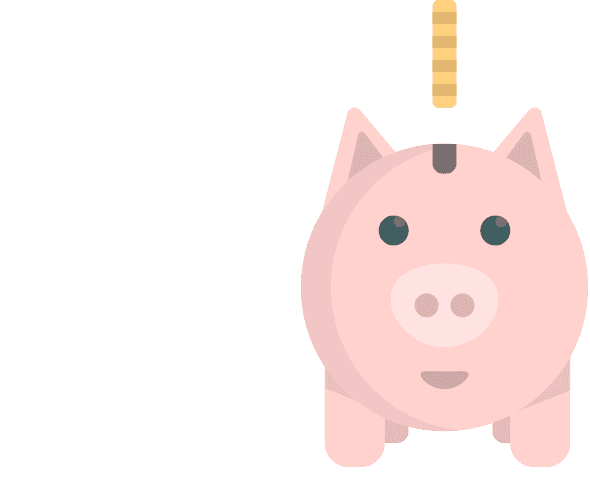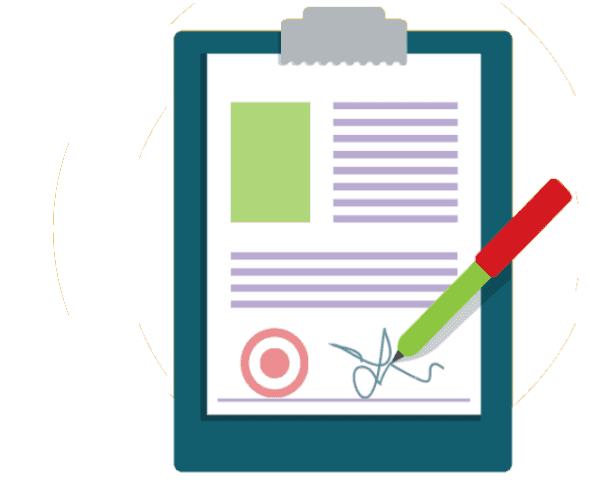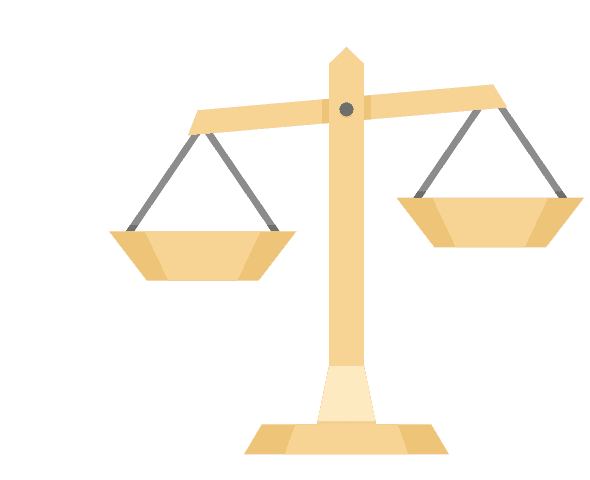Whether you have already purchased or are looking to buy soon, being prepared is very important and will save you money. With so much to look forward to, it is important that you make the proper financial decisions during the mortgage process, as it could be one of the largest financial decisions you make in your life. This Mortgage 101 post will help you understand some of the basics to start your learning process on your way to a great mortgage. You can also view more posts here, or reach out to our team at any time with questions using our contact info.
What is a mortgage?
A mortgage is a loan of money that is borrowed by a home buyer from a lender (financial institution) to purchase a home. The borrower will be charged interest as a fee from the lender to pay for the loan.
The size (amount of money borrowed) of your mortgage is determined by what the borrower can afford, which is determined by considerations such as financial situation, savings, debt and credit score.
Why do you need a mortgage?
Homes are expensive and most people cannot buy one outright by themselves. A mortgage enables a buyer(s) to purchase a home, while only putting down a percentage of the total price, called a “down payment”.
What is a down payment?
A down payment is the amount of money that a home buyer pays towards the purchase price of a home. For example, if you are buying a home for $800,000 and you have $160,000 to put towards the purchase price, this means that your down payment is $160,000. It is important to note that your down payment should not take up all of the money you have allocated to your home purchase, as there are other closing costs (land transfer tax, real estate lawyer, etc) that you will need to account for. In Canada, the minimum down payment for a mortgage is 5%. However, if your down payment is below 20% you will need to pay for mortgage insurance. Most home buyers have a down payment close to 20%. You can use our mortgage calculator to calculate the numbers - LINK
How much can you afford?
You need a down payment of at least 5%, however, this does not mean that you can afford any property if you have the 5% down payment saved. All borrowers' affordability is based on a calculation of their total assets, liabilities, and salary. These calculations determine if you have enough money and salary to comfortably afford your down payment as well as expenses and mortgage payments.These calculations are called debt service ratios.
What approval do you need -Pre-Approval, Approval or Refinance?
There are different phases of the potential home buyer process, before you buy (pre-approval), after you have put in your offer (approval) and when you have a home and want to change your mortgage (refinance).
Mortgage Pre-Approval: Pre-approval comes before a home purchase, it gives a potential homeowner the ability to search for a home with the peace of mind that they can spend to a certain level and have a lender provide them with a mortgage. A lender will evaluate a potential home owner's down payment amount, credit score and debt service ratios (and sometimes application and tax/income documentation) to determine their maximum home affordability. If a lender pre-approves a borrower, this means that they can have a 30-120 day rate-hold(depending on the lender) with the specific lender that guarantees the rate for the specific period. Note, you do not need a mortgage pre-approval, however, it is highly suggested to ensure that you can afford the home you are looking to purchase. Learn more about the importance of pre-approval.
Mortgage Approval: A borrower can only be approved for a mortgage if they have an accepted purchase and sale agreement (aka they have bought a property). Mortgage approval is the step to take when a home buyer needs financing for a specific property at a specific date. A mortgage approval will determine the lender and set out all the terms and conditions of the mortgage, including features and rate.
Refinance / Switching a Mortgage: For individuals that already have a mortgage on a property but would like to inquire about moving the mortgage to another institution and/or increasing their balance. A borrower would switch mortgages to see if there is a better option for them, or they would refinance their mortgage to take-out existing equity. Be advised, if a borrower is looking to refinance/switch their mortgage, the maximum amount they can borrow is 80% of the value of their property.
Timeline
Pre-approvals can generally be locked in anywhere from 30-120 days before a purchase. So we highly suggest getting pre-approved while you shop around. But don’t worry, getting pre-approved does not lock you into an agreement. If new features are available or rates go down, we can always find you a better approval once you purchase a home. It generally takes anywhere from 48-72 hours for an approval
Approvals are needed once you purchase a home. Most approvals have up to a 60-day hold. Approvals take anywhere from 24-72 hours to acquire depending on how quickly the approval is needed (i.e. you have a purchase with a 5-day financing condition).
Refinancing is an interesting one. Many lenders will reach out 6 months before the end of your term promoting a special rate mortgage specific for you. That is definitely not the case. This can often be a trap to lock you back into their mortgage. That is why we often tell potential clients to reach out to use 6-7 months before the end of their term to find out what type of mortgage we can get for them and how we can beat the offer from their current lender.
Who provides a mortgage?
A mortgage is provided by a lender (financial institution) that lends money to home buyers in the form of a mortgage. The three main types of lenders are Banks, Monoline Lenders, and Credit Unions.
Monoline Lender - A financial institution that purely focuses on mortgages. They do not offer any other bank related products that can be cross-sold. Monoline lenders can be very large, in fact, Canada’s second and third largest lenders through brokers are Monoline Lender.
Bank - A financial institution that is licensed to make loans and receive deposits. Banks can also offer other financial services, such as mortgages and wealth management.
Credit Union -A Credit Union is a cooperative financial institution that is managed and owned by its members. Credit Unions are regulated, just like any other financial institution, but their goal is to provide a convenience and security at reasonable prices.
There is also a fourth type of lender, called a “private lender”. Private lenders are utilized when someone cannot qualify for conventional mortgages. It provides a backup option for a short-term loan. Private mortgages have an amortization length of between 1-3 years. During that time, the borrower will only pay off the interest that is accumulated every month. Interest rates can be much higher with a private mortgage and can range anywhere from 8-18% as the private lenders are taking on a greater risk. Generally, at the end of the term, the borrower will transfer their mortgage to a traditional lender.
What type of lender is best?
Simply put, there is no such thing as the "best lender", it is always a matter of what lender is best for your needs. At first glance, some may think that it is best to go with a big bank, but that is often not the case. That is why we at Homewise have partnered with many different lenders. Each offer different types of mortgage features, rates and terms that are constantly changing based on macroeconomic factors.So we stress to our users to not be persuaded by the name of the lender, but rather the terms and features. We are here to help, we work to find the best lender specific to your unique needs.
Open vs. Closed Mortgage, what’s the difference?
Most home buyers will choose a closed mortgage because it offers them a better rate and the key features needed for the average home buyer. Open mortgages are generally used if a home buyer is flipping a house, or about to come into a large amount of money.
**Closed mortgage -**is a mortgage that cannot be repaid in full before the end of the borrower’s term without a penalty. However, because closed mortgages come with a larger breaking penalty, they usually come with much lower rates and better features compared to open mortgages.
Open mortgage - enables a borrower to repay their mortgage, in part or whole, at any time without any penalties or notice. Open mortgages are useful if a home buyer knows that they will be moving out within a short period of time, or if they are coming into a large amount of money (such as from a home sale or inheritance) and wants to pay off their mortgage quickly. It is important to note that open mortgages come with a much higher interest rate.
Fixed vs. Variable what should you do?
Most Canadians go with a Fixed mortgage. Learn more about Fixed vs. Variable here
A fixed rate is: a fixed rate mortgage is a loan where the rate stays the same through the term of the loan. For example, if you have a rate of 2.93% on a 5-year fixed mortgage, the rate will be the exact same all 5 years of the term and your payments will not change.
A variable rate is: a variable rate mortgage is a loan where the rate may change up or down over the term of the mortgage based on market conditions. For example, if you have a 2.7% 5-year variable mortgage, the rate may go down to be 2.6% on year 2 and 3, it may go up to 2.8% on year 4 and 5. Monthly payments will stay the same, however, the amount of interest paid off will change based on the rate.
Important features and terms of a mortgage
Mortgages come with various features and terms, depending on which lender you go with. These range from payment schedule, to prepayment options and of course rate. Unfortunately, many people believe that rate is the most important mortgage feature, but it is definitely not! It is important, but there are many other mortgage features that will save you a lot more money over the lifetime of your mortgage. Read this article to find out features that save you more money than rate. Below are the key mortgage features to be aware of
Basic mortgage features
Amortization Period - The length of time that it takes to pay off your mortgage is called the Amortization period. Typical amortization periods in Canada are between 25 and 30 years. The longer the amortization period is, the less your monthly payments will be because your payments are being spread over a longer period of time. However, it is important to know that the longer it takes for you to pay off your mortgage, the more interest you will end up paying. So it will save you more money in the short term, but cost you a lot more overall.
Term - The length of the contract that your current mortgage will be in effect (generally ranges from 1-5 years). This includes all of the terms of the mortgage that your current contract with a lender includes, including prepayments and interest rate. At the end of your term, you will need to renew your mortgage with your current lender, refinance/switch to a new lender to get better terms/features, or if you are able to pay off the remaining balance.
Money saving mortgage features- these key mortgage features will enable you to save upwards of tens of thousands of dollars in interest over the lifetime of your mortgage. So it is important to be aware of how to utilize them. Not all lenders offer all features and further, some offer better terms than others.
Amortization length - The shorter the amortization period, the less interest you will pay. Saving you a lot of money. (Test this out on our mortgage calculator)
Payment schedule - The schedule at which you choose to pay off your mortgage. This can be monthly, semi-monthly, weekly, bi-weekly, accelerated weekly, and accelerated bi-weekly. Accelerated payments will save you a lot of money.(Test this out on our mortgage calculator)
Yearly payment increases (Lump Sum Payments) - The amount your lender will allow you to pay as a lump sum yearly. Some lenders allow up to 20%, while others allow up to 15%. Some lenders do not allow any pre-payments. This lump sum goes directly to paying off your mortgage principal, saving you a lot of money.
Prepayment - Certain lenders will allow you to pay more money in addition to your scheduled payments. This will enable you to pay off your principal more quickly and lower the amount paid in interest, saving you a lot of money.
Interest rate - Interest rate is a percentage of the loan the bank or lender charges in order borrow money from them, usually expressed in an annual basis. Essentially it is the cost of the debt you take on in order to purchase the property. The lower the interest rate, the lower your mortgage payments will be. Saving you some money, however, it is important to note that a lower interest rate is important, but will often save you a lot less than the features above.(Test this out on our mortgage calculator)
Mortgage features to watch out for
Portability - If a borrower is selling their property to buy another home, a portable mortgage allows them to transfer their existing mortgage to a new property without incurring any early payout penalties. This includes the transfer of their mortgage balance, interest rates and terms and conditions. Most lenders will offer portability, however, if you are looking to move provinces in the future, certain lenders will not allow cross-province portability.
Collateral - A collateral mortgage differs from a standard mortgage, in that a standard mortgage places a charge on the title of the home and a collateral mortgage places a charge on the total registered value. This enables a borrower to borrow more money from the lender as the property value increases. While this feature allows a borrower to take out more money from their lender, rather than refinance, it does come with a major caution. A collateral mortgage cannot be transferred to another lender, even when the term comes to an end. This can be a big issue as it can cause a borrower to have a large prepayment penalty if they ever need/want to leave their lender.
Buying with someone else or with the help of your parents
When buying a home, you may be buying on your own, with someone else - a co-applicant (i.e. husband/wife) or with the help of a co-signer (usually parents).
Buying with a Co-Applicant - when you have someone who will also be responsible for the mortgage and will own it along with your property.
Buying with a Co-Signer - when have an immediate family member who will co-sign the mortgage but not have any ownership. This can enable you to afford a more expensive home if the co-signer has the finances and credit to support you. (Note, the co-signer does not have to spend any money, they are basically vouching that if you were to default on your mortgage, they would be able to cover the payments).
Buying alone -you will be the only one financially responsible for the mortgage.
Buying alone with a "Gift"-When you are buying alone, but a portion of the down payment that will come from a source/someone (such as a family member) other than the purchaser. This is money that is meant only for the down payment and is not to be repayable by the buyer.
The steps to getting approval
The application
All mortgages require an application. This application includes your key personal information (name, address, job, etc) as well as financial information (Salary, assets, etc). If you are buying with someone else, such as your spouse, their information will need to be provided as well. All of this information is legally required by the government as well as lenders to approve your profile for a mortgage. At Homewise, we have a simple online application that you can start here
Collection of financial documents
Once the initial application is complete, a group of documents will also need to be provided to the lender to confirm your identity and finances. This list includes your ID, Pay Stubs and an Employment Letter.You can view the full list here
Documentation varies based on your specific profile (i.e. if you are self-employed, commission salary, etc), however, it is always better to be prepared. That is why we suggest ensuring that you have two years of your key financial documents prepared, including your NOA and T4. Self-employed individuals need other documentation, including T1 and Financial Statements. You can view the full list here
The credit check
A credit score is a grading given to you based on the repayment history of your credit facilities, such as credit cards, lines of credit and auto loans. It represents a judgment of the risk you pose to money lenders at a specific point in time, the higher the score the less risk you pose. Credit reporting agencies such as Equifax and Trans union use a scale between 300-900 to indicate creditworthiness. A score of 650+ is ideal.
Finding the right lender for you
Each application is as unique as you are. That is why it is important to find a lender that is tailored to your needs. Further, each lender offers a different package of features, so it is important to shop around.We work with many lenders, including banks, monoline lenders, credit unions and private lenders, with which we will shop around and negotiate with them on your behalf, all to ensure that we provide a solution that is best for you.
Further, if you were to shop around your mortgage on your own, you would need to have your credit pulled by each lender. This could negatively affect your score and risk your chance of getting approved. We only need to pull your score once and can then negotiate your deal with all of our lenders. We also have a team of mortgage experts that know the right questions to ask to find you a great mortgage.
Lenders assess your financial profile based on
Assets - how much you can put towards a down payment, how much you have in savings (including RRSP and investments), and any other owned items like a car. This can also include a “Gift” from a family member to help purchase the home
Income and employment - a mortgage is a long-term commitment, so lenders want to ensure that you can manage payments over the full length of the mortgage. So they will look into the size, stability and outlook of your income. Individuals that are employed by a company and on salary generally have a few fewer hoops to jump through.
Credit - your credit score enables lenders to evaluate your ability to pay back loans. The credit check shows your history of loans and credit. The higher your score the better. Generally, more lenders will prefer a score of 650+.
Debt Service ratio - are the calculations used by lenders to determine how much a borrower can afford to borrow in order to purchase a home or refinance their existing mortgage. It is basically a calculation of your current debts, compared to your income. There are two debt service ratios, GDS and TDS. Lenders look for potential home buyers that have a lower borrowing rate.
Approval
Once the right lender is chosen and they approve you, they will send an approval agreement. This is a document that will be signed by all parties to approve the mortgage.
The next steps from there will be to provide any final key documentation to the lender, signing their mortgage documentation, as well as finding a real estate lawyer to finalize the deal with the lender.
Costs associated with buying a home
Closing costs - a mistake that buyers often make is that when calculating the price and affordability of their future home, they do not take into account the closing costs that are associated with the home purchase. Among the costs, below is a list of the most common to keep an eye out for and budget into your plans. These costs can be upwards of 1-3% of the price of your home. These costs include the land transfer tax, property insurance and title insurance. Learn more about closing costs here
Mortgage Payments - the payments that you will make based on your chosen payment schedule, which includes principal and interest(i.e. monthly, bi-weekly, accelerated bi-weekly).
Carrying costs - The cost of ownership that must be taken into account as monthly/annual costs. On top of the mortgage payments, this includes hydro, gas, property tax and home insurance. This is thousands of dollars a year, so it is important to be aware of all the costs involved in ownership.
Closing the mortgage
In the week before the mortgage closes, you will meet with your lawyer to sign the final documentation. Your lawyer will then get the keys for you to move into your new home.
Move in!
Now that you are all moved in and happy in your new home, you will begin to make your mortgage payments.
As you progress through the years, do not forget to take advantage of prepayment privileges that can save you tens of thousands of dollars.
Glossary of mortgage terms
To learn even more, we put together a list of every key mortgage term, you can view it here
Get Started
Now that you are a mortgage expert, you are ready to get started. Click here to start your Homewise mortgage application and get a great mortgage.









